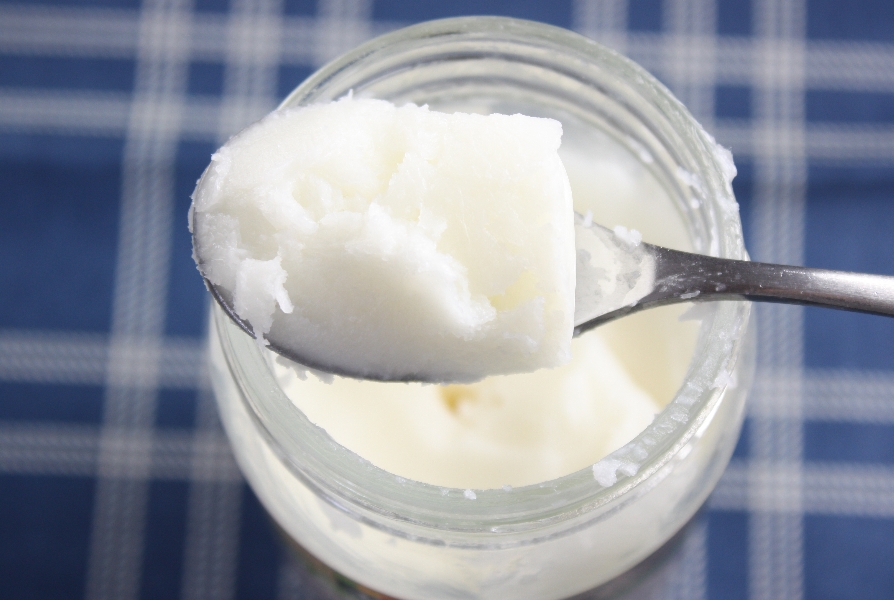Big Food starts anti-coconut oil campaign again, despite studies showing its great for your health
07/19/2017 / By Vicki Batts

Coconut oil is highly regarded for its wide array of uses: From moisturizing skin and clearing up acne to cooking your favorite foods, there’s plenty of reasons why people love coconut oil. But, as you may have noticed, this versatile fat has been getting a lot of bad press lately. For example, the United Kingdom’s Telegraph recently published a hit piece that declared the saturated fat in coconut oil makes it bad for you.
Now, the logic here actually has little to do with the actual composition of coconut oil. When making the claim that coconut oil is bad for you, the Telegraph falls back on the American Heart Association’s general stance on saturated fat as a whole. The argument against saturated fat has been highly contested — and when it comes to coconut oil specifically, this generalization falls short. Why? In addition to the fact that saturated fat is not the enemy it has been made out to be, coconut oil also features a highly beneficial type of saturated fats, called medium-chain fatty acids.
Saturated fat is not the enemy
Yes, coconut oil does contain a high amount of saturated fat: 87 grams of saturated fat per 100-gram serving. That much is true. First and foremost, saturated fat has long been demonized as a harbinger of any number of diseases. While the war on saturated fat began in the 1950’s thanks to a cherry-picked study by Ancel Keys, the fact is that there is much evidence to the contrary. Saturated fat is not explicitly bad, as we’ve been lead to believe. For example, it is actually very important to keeping your brain healthy.
When it comes to brain health, it’s easy to understand why saturated fat is so important. The myelin sheath, which surrounds nerves and is key to their functionality, is made up almost entirely of saturated fat. The brain itself is primarily made of fat. As sources explain, in addition to protecting the brain, studies have shown that saturated fat offers protective benefits to the liver, heart, skin and immune system.
And, as this 2010 study from the American Journal of Clinical Nutrition concludes, “there is no significant evidence for concluding that dietary saturated fat is associated with an increased risk of CHD [coronary disease] or CVD [cardiovascular disease].” It’s worth noting that the meta-analysis in question featured nearly 350,000 people who were followed for 5 to 23 years; a fairly substantial data set, to say the least.
A more recent study, from 2016, also showed that saturated fats could be beneficial for heart health. Norwegian researchers found that in addition to not increasing study subjects’ risk of heart disease, those on a diet high in fat exhibited “substantial improvements in several important cardiometabolic risk factors, such as ectopic fat storage, blood pressure, blood lipids (triglycerides), insulin and blood sugar.” How about that? The fat sources the test patients primarily consumed were also foods with low amounts of processing: Butter, cream and cold-pressed oils. Study subjects on the high-fat diet also exhibited an increase in the “good” cholesterol — HDL. No significant changes were observed in LDL cholesterol levels in the high-fat group, which is contrary to commonly held beliefs.
Coconut oil and medium-chain fatty acids
Medium-chain fatty acids (also known as medium-chain triglycerides) are a specific type of saturated fat that have become highly regarded for their health benefits. Medium-chain triglycerides (MCTs) are metabolized differently than the long-chain triglycerides seen in animal fats. MCTs are known for being metabolized more readily than long-chain fats. Research has shown that MCTs can help to bolster endurance during exercise, speed up metabolism and help with weight loss and appetite control.
Studies have also indicated that MCTs may play a beneficial role in preventing atherosclerosis, supporting the immune system and more. [RELATED: Learn more about health maintenance at Prevention.news]
To sum it up: Medium-chain fatty acids seem to have a host of health benefits that are not afforded by other types of saturated fats. Approximately 60 percent of the fats in coconut oil are MCTs. Lauric acid, a specific type of MCT in coconut oil, is known for its antimicrobial effects and is a huge component of human breast milk that helps prevent infections in newborn babies.
In addition to modern science getting things wrong about saturated fat as a whole, it is clear that coconut oil has a myriad of health benefits for a number of different reasons. Not only is saturated fat not as bad for you as the media would have you believe, coconut oil in particular has a number of properties that make it stand out from the crowd.
Sources for this article include:
Tagged Under: Big Food, coconut oil, food industry, Healthy Oils, MCTs, medium chain fatty acids, propaganda




















